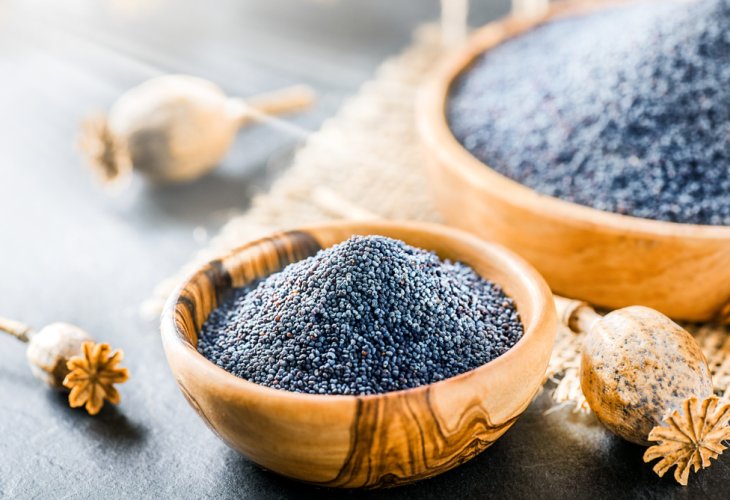Beyond Hamantaschen: Why Poppy Seeds Deserve a Spot in Your Pantry
From fillings and seasonings to even poppy milk, explore all the ways to enjoy poppy seeds and why they're worth it.
 (Photo: Shutterstock)
(Photo: Shutterstock)The traditional filling for hamantaschen has long been poppy seeds, and despite the ever-changing fillings, poppy seeds have retained their place of honor.
Poppy seeds may be small and black, but they pack a significant nutritional punch. Just one tablespoon of poppy seeds holds as much calcium as a cup of milk. They're packed with dietary fiber, aiding in digestion and also providing nourishment for beneficial bacteria, which strengthens the system overall.
Poppy seeds are rich in B vitamins and minerals like iron, magnesium, phosphorus, and potassium.
They are also high in zinc—a crucial mineral for maintaining strong hair and nails, as well as boosting the immune system. Poppy seeds also provide a good amount of iodine, which is essential for areas where table salt lacks iodine, as poppy seed oil is used to prevent iodine deficiency. Lack of iodine can lead to an underactive thyroid gland.
The seeds also contain linoleic acid, a fatty acid that helps reduce cholesterol levels and prevent heart and vascular diseases.
The poppy plant has calming compounds and alkaloids known for their pain-relieving, soothing, and sleep-inducing properties. These compounds are usually found in the sap of the plant, rather than in the seeds, so there's no need to worry, especially when consumed in moderation. Processing, heating, and cooking can reduce the alkaloid content.
Poppy seeds are effective for cough relief: you can boil them with water or almond milk and sip slowly.
Their nutty flavor adds crunch to dishes, and roasting them enhances their taste. Grinding them results in a thick paste.
Poppy seeds can be used as a spice or to thicken sauces in dishes; they add a unique touch to pasta or salads.
It's best to use poppy seeds immediately after grinding them, as they can develop a bitter taste. Therefore, it’s important to use freshly-ground seeds or store them frozen in a sealed container. Purchase from a store with high turnover since stale poppy seeds are bitter and unpleasant.
You can even make poppy milk, which is packed with calcium and other nutrients: soak a cup of unground poppy seeds in three cups of water overnight (no longer, as they may spoil). Blend well with two dates and strain through a cloth.
Zohara Sharvit is a naturopathic doctor (N.D) with extensive experience in treatment, advice, and workshop facilitation. For a free workshop booking, call 073-2221290

